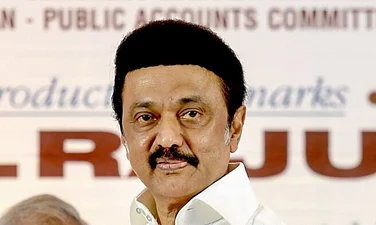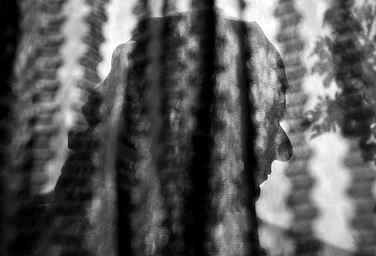There's a new player in track-II diplomacy in Jammu and Kashmir: the Rashtriya Swayamsevak Sangh, which has resolved to "mobilise nationalist forces in the Valley". Like OSD at PMO A.S. Dullat, Ram Jethmalani, R.K. Mishra and other informal negotiators, the RSS objective is to facilitate the creation of a third force to participate in the state assembly elections due next month. The RSS is reportedly also backing the demand by various political parties in the state that governor's rule must be imposed before elections are announced.
According to reports from Srinagar, an RSS team, including sahsampark pramukh Indresh, joint spokesperson Ram Madhav and senior pracharak Manohar Lal (currently the BJP's J&K organising secretary), spent a couple of days in Srinagar last week, meeting more than 50 different organisations and individuals. But, like all the other track-II sprinters, they were brought up short by three demands raised by groups across the board: governor's rule, postponement of the polls and protection to all political parties.
The RSS has made it known that it's sympathetic to the demand for governor's rule and postponement of elections. But its long-term agenda is somewhat at variance from that of the other negotiators: it would like to see an "anti-Farooq Abdullah, pro-India front" articulating its anti-autonomy and anti-Article 370 agenda. At the moment, however, the Sangh's limited objective is to damage the NC as much as possible during the assembly elections.
Of the potential third force players, four are in touch with the PMO: Kukka Parrey, Mufti Mohammed Sayeed, Shabir Shah and Sajjad Lone. But their stand is pretty much the same as that of other groups. Shah, who was in the Capital last week, clarified that he would participate in the elections only if they were postponed and governor's rule was imposed. He even said that New Delhi would be playing a cruel trick on those who have come forward to participate in the polls if they are held next month with the NC government still in power.
Shah would also like the government to announce an amnesty and rehabilitation scheme for militants. Hurriyat leader Mirwaiz Umer Farooq is believed to have visited the Capital last week to hold discussions on the issue. Home ministry sources say the government is not averse to releasing some of the moderate, pro-democracy second-rung Hurriyat leaders currently in jail. The Hurriyat itself continues to flip-flop, keen to come to the negotiating table one day and withdrawing the next.
But the Hurriyat may harden its stance on elections. Its leaders from across the border have protested President Pervez Musharraf's Kashmir Committee head Sardar Qayyum Khan urging their chairman Abdul Ghani Bhat to participate in the polls.
So far, nothing concrete has emerged in terms of a third force. A group of some 15 marginal organisations have come together as the Qaumi Tehrik-i-Insaaf. The front hopes to bring as many organisations on board as possible, including NC and Congress splinter groups and, eventually, bigger players like Shah and the Mufti.
Among the second-rung Hurriyat leaders being mentioned are Khursheed Mir, Firdaus Baba, Imran Rahi and Mehdi Lone. Abdul Majid Dar, the ex-Hizbul leader from whom the Centre seemed to have high expectations, has gone into hibernation. And efforts are on to find a central figure around whom a broad-based front can take shape.
The question being asked is why should the RSS concern itself with the Valley, given the fact that the BJP has only a marginal presence there. Ostensibly, the Sangh is acting on the resolution it adopted at its Kurukshetra meeting—seeking to consolidate nationalist forces in the Valley. For now, its one-point agenda in the Valley seems to be: hurt Farooq Abdullah.The calculation being that of the 46 seats in the Valley, even if 12 to 14 go to independents or small parties, Abdullah could be in trouble. His stakes in Jammu (37 seats) and Ladakh (four seats) are limited.
The Centre, which has been actively encouraging the formation of a third front, faces a dilemma for precisely that reason. It is unlikely that the NC can be toppled in the elections. But if its majority is reduced and other groups, including the second-rung Hurriyat leaders, participate in the polls, the international community would be satisfied and the credibility of the assembly elections would not be in question. On the other hand, it can't risk a government sympathetic to pro-azadi elements.
Political observers say the NC and the BJP, in an alliance of convenience at the Centre, have nothing to gain from each other electorally. So, they are likely to distance themselves increasingly as the election draws closer. But the BJP's credibility has suffered considerable damage thanks to the NC. If RSS efforts to set up a pro-trifurcation front in Jammu and an anti-Farooq third force in the Valley are seen in that context, they seem to be aimed at giving the party a helping hand.
The Valley's Second XI
As the Hurriyat top-brass vacillates, the Centre eyes the moderates to see their poll plans through

The Valley's Second XI
The Valley's Second XI
Published At:
MOST POPULAR
WATCH
MORE FROM THE AUTHOR
PHOTOS
×





















